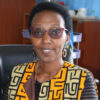ScheduleAgenda
Registration at the Kigali Serena Hotel (conference halls side) ground floor
Registration
Opening Remarks and Keynote Address
- Sahr Kpundeh, Country Manager World Bank Rwanda.
- Aage Jørgensen, Head of Portfolio Origination & Management, Nordic Development Fund.
- Mama Keita, Director UNECA Sub-regional Office for Eastern Africa.



Coffee Break
Session I: Climate Resilient Investment Facility (AFRI-RES) – Harnessing & Mobilizing Climate Resilient Knowledge for Climate Action
With the funding provided by NDF, AFRI-RES has developed knowledge products and analytical instruments, enhanced capacity building, and evidence to inform policies, finance, and investment at all scales, aiming to build resilience and positively advance sustainability and inclusive development. This session will highlight the initiatives undertaken as part of the AFRI-RES partnership to identify successes, lessons learned, and opportunities for scaling up climate action throughout Sub-Saharan Africa. The session will:
- Convey lessons learned from the development of knowledge products to embed resilience across multiple sectors and stages of the project development cycle.
- Explore how UNECA has used outreach, dissemination, and training to build capacity of practitioners on resilience; and
- Discuss plans for expanding AFRI-RES to scale up its impacts.



Lunch Break
Panel II: Innovative financing for climate adaptation and a green transition
African countries urgently need access to finance to adapt to climate change and shift to a low-carbon growth path. Africa will need $2.8 trillion between 2020-2030 to implement its Nationally Determined Contributions (NDC), leaving a climate finance gap likely wider than 90 percent. Climate financing pledges have been slow to materialize, and there is a growing urgency to fill this gap. Financing adaptation strategies in key development sectors will be more cost-effective than financing increasingly frequent and severe crisis responses, disaster relief, and recovery pathways. Overall, progress on Paris implementation remains slow, and African countries must go beyond green pledges to meet climate goals, notably through stronger institutions and policies and greater regional cooperation. To accelerate implementation, more climate-smart financing from private and public sources is needed, but barriers to accessing quality finance to support the delivery of climate action and sustainable development remain despite the increasing amount of climate finance. Drawing on a range of innovative climate finance mechanisms and taking them to scale throughout the region is key to helping close this gap. This session aims to: i) Discuss the constraints African governments and the private sector are facing to tap into new financing resources; ii) Showcase what type of instruments governments and the private sector are using to mobilize climate finance.
- Session chair: Isfandyar Zaman Khan, Lead Financial Sector Specialist, World Bank.
- Bassirou Sarr, Advisor Minister of Finance and Budget of Senegal.
- Jules Soungalo Coulibaly, Deputy General Director, General Directorate of The Treasury and Public Accounting of Cote D’Ivoire (Presentation in French).
- Miguel Monteiro, President of the Cabo Verde Stock Exchange.



Coffee Break
Panel III: Locally Led Climate Action at Scale in Africa
As weather-related disasters like floods, droughts, and landslides become more frequent, prioritizing people's involvement in climate action is crucial. Despite being most affected by climate impacts, local communities often have limited influence in policies and decisions that shape their ability to manage current shocks and adapt to future changes. Locally led climate adaptation initiatives and devolved climate finance strategies direct funding to communities directly affected by climate change, fostering collaborations between citizens and local governments to identify solutions tailored to local needs. This approach enhances local capacity for climate action and encourages partnerships among governments, communities, and civil society to assess risks and develop inclusive solutions. By strengthening national systems for devolving climate finance, countries can both attract more funding and improve the effectiveness of climate finance allocations. This session aims to bring together national and local governments, development partners, and non-governmental representatives to discuss the experience, challenges, and opportunities in supporting locally led climate action and expanding national systems of devolved climate finance. The objective is to showcase how governments and non-governmental actors are working at various levels to promote large-scale locally led climate action, by sharing experiences from ongoing initiatives across Africa.
- Session chair: Nicholas Meitiaki Soikan, Senior Social Development Specialist, World Bank.
- Honorable Cllr. Kenalemang Rose Phukuntsi, Mayor of Tswelopele Local Municipality, South Africa.
- Peter Odhengo, FLLoCA Program Coordinator, and Head of Climate Finance and Green Economy Unit, Ministry of Finance, Kenya.
- Sophie De Coninck, United Nations Capital Development Fund.
- Rubben Ashong, Focal person, Locally Led Climate Action, Gulf of Guinea Northern Regions Social Cohesion (Soco) Project, Ghana.





Evening Gala Dinner at the Serena Hotel
Panel IV: Climate resilient infrastructure: promoting climate smart investments in physical capital for the realization of Agenda 2063 goals and the SDGs in Africa
The Programme for Infrastructure Development in Africa (PIDA), endorsed in 2012 by the continent’s Heads of State and Government, lays out an ambitious long-term plan for closing Africa’s infrastructure gap, including through major increases in hydroelectric power generation and water storage capacity. However, it is essential that climate resilience is integrated in the design of these infrastructure planning and implementation as Africa is being disproportionately impacted by the adverse impacts of climate change. AFRI-RES was established with the objective of supporting African countries, project developers, and other stakeholders with the tools and capacities to integrate climate resilience into infrastructure planning and implementation. The objective of this session is to promote the case for climate-smart investments in physical capital for the realization of Agenda 2063 goals and the SDGs in Africa. The discussions in the session will highlight climate risks to infrastructure development, showcase how climate-resilient infrastructure can be achieved in Africa, highlight examples of how countries are mainstreaming climate considerations into their infrastructure investment pipelines, emphasize the importance of investing in the uptake of climate information services for building resilient infrastructure, and identify trends and emerging game-changing opportunities for international cooperation in support of climate-resilient infrastructure development in Africa.
- Session Chair: Linus Mofor, Senior Natural Resources Officer - Energy, Infrastructure and Climate Change, African Climate Policy Centre, UN Economic Commission for Africa.
- Keynote address on the theme of the session: Her Excellency Ms. Nardos Bekele-Thomas, Chief Executive Officer, AUDA-NEPAD.
- Emanuel Rutangengwa, Head Transport Policy and Planning of the Central Corridor Transit Transport Facilitation Agency (CCTTFA).
- Towela Nyirenda Jere, Head of Infrastructure, Digitalization and Energy, AUDA-NEPAD.
- Kamugisha Kazaura, Director of Infrastructure and Energy, African Union Commission. TBC.


Coffee Break
Panel V: Resilient Landscapes for food and water security.
Africa’s natural capital is foundational to economies in the region and to bolstering adaptation and building climate resilience in people, assets, and economies at large, but is under threat due to climate change. Moreover, Africa is one of the world’s most food-insecure regions, with about one in four people in Africa facing hunger in 2021. While Africa’s agricultural exports are rising, the continent remains a net food importer at an annual cost of $43 billion (2019), which could top $111 billion by 2025. Climate change, economic shocks and conflict are key drivers of increasing food insecurity, stunting, and fragility in the region. The impacts of these crises intersect with one another and compound issues of food availability and access. Investments in Climate-Smart Agriculture (CSA) and well-designed landscape programs can reap benefits for countries in the region, including increased preparedness against food insecurity, stronger value chains, and sustainable management of land and natural resources. Within this context, this panel aims to: i) Showcase and exchange knowledge on how integrating climate resilience across landscape programs can bolster food and water security; ii) Present strategies employed by countries to embed resilience into their food systems and natural ecosystems. Session chair: Sara Moyer, Senior Environmental Specialist, The World Bank. Panelists:
- Coletha U. Ruhamya, Deputy Executive Secretary, Lake Victoria Basin Commission (LVBC).
- Teddy Mugabo, CEO for the Rwanda Green Fund (FONERWA).
- Michael Tesfaye Gudeta, Climate Action through Landscape Management (CALM) program coordinator, Ministry of Agriculture, Ethiopia.
- Abou Bamba, Coordinator Abidjan Legacy Program (ALP) and Advisor to the Prime Minister of Cote d’Ivoire
- Matsolo Migwi, Senior Water Resources Engineer, Department of Water Affairs, Lesotho.




Lunch Break
Panel VI: Resilient Cities.
Africa is the fastest urbanizing continent in the world and has a significant opportunity to strategically embed resilience into urban planning and policies. The population in Africa is expected to double, adding 1.05 billion people to the region by 2050 and putting additional pressure on cities. Urban growth in Sub-Saharan Africa has only just begun, with two-thirds of cities yet to be built. Thus, climate change impacts, including urban heat island effects and flooding, combined with the doubling of the population and an urban transition, will significantly increase climate-related health threats and further degrade cities’ livability and productivity. To effectively manage the challenges posed by climate and disaster risks and promote resilient urban development, it is imperative to address their impacts through a multi-sectoral approach. This panel aims to: i) Showcase how countries are integrating adaptation, resilience, and nature-based solutions into urban planning and policies to ensure sustainable development and enhance the quality of life for its growing population; ii) Explore how cities can be or are being responsible stewards of natural resources while also preparing for the challenges of a changing climate; iii) Discuss strategies, policies, tools, and data that cities can employ to create win-win results that will improve resilience and make them healthier, more attractive places to live and do business. Session Chair: Sheila W. Kamunyori, Senior Urban Specialist, The World Bank. Opening remarks: Aage Jørgensen, Head of Portfolio Origination & Management, Nordic Development Fund. Panelists:
- Michael Bankole, Deputy Director and Head of the Climate Change and Environmental Planning Department, Lagos Ministry of Environment.
- Faustin Nsengiyumva, Project Coordinator, Second Rwanda Urban Development Project (RUDPII).
- John Kissi, CEO, Ghana Hydrological Authority.
- Daniel Sullivan, Director: Risk and Resilience, Future Planning and Resilience for City of Cape Town.




Coffee Break
Parallel specialized sessions 1: Enhancing Resilience of Transport and Energy Systems to Climate
Investments in infrastructure for provision of transportation and electricity services are an integral part of development interventions in African countries. These infrastructures share some common features such as extending over expansive territories, narrowing urban and rural divides, interdependence with users, and interconnection with regional infrastructure. The growing capacity of transport and electricity systems is not without risk, particularly due to evolving climate and its impacts, and these risks can derail progress towards attainment of universal access. This session aims to:
- Green energy and use. Provide an overview of the motivations and impacts of greening initiatives – e.g., Kenya’s 100% green grid trajectory and its complementarity with deployment of electric vehicles.
- Green energy and distribution. Highlight the need to mainstream use of climate-resilient components to increase sustainability of the electricity distribution network and showcase the role of the private sector in developing innovative technologies.
- Green transport by design. Discuss strategic choices and share recommendations on climate resilience in implementation of roads projects. The session will provide an overview of a climate-resilience manual to inform design, operation and maintenance of roads.
- Einar Haveland, CEO, EcoPole (https://ecopole.no/)
- Elias Twagira, Founder and Managing Director of ASTRIK International https://astrikltd.com/
- Imena Munyampenda, Director General at Rwanda Transport Development Agency (RTDA).



Parallel specialized sessions 2: Climate Resilient infrastructure: Promoting climate smart investments in physical capital and Engaging partners/investors on PIDA implementation (Organized by the African Union Commission (AUC) and the African Union Development Agency (AUDA-NEPAD))
Climate change related and extreme weather events are impacting infrastructure across the African continent. This creates immense infrastructure development and maintenance costs for the member states. To address this challenge, the AUDA-NEPAD is implementing the AU Climate Change and Resilient Development Strategy and Action Plan (2022-2032) by supporting the integration of resilience and adaptation measures in priority infrastructure development. During this session, five PIDA projects will be presented to highlight the innovative project preparation strategies and interventions being undertaken to achieve actionable climate resilience and mitigation measures in infrastructure development in Africa and enhancing project bankability to facilitate access to funding including climate finance. In addition, the AU, AUDA-NEPAD, and partners will present the project funding gap to potential project financiers. Details on the projects to be presented are highlighted below. Brief descriptions of projects to be presented during ACRIS VI.
| Project title and description | Countries |
| *Bria Dam to Lake Chad Water Transfer Infrastructure and Integrated Basin Resource Management Studies: The objectives of these projects are to conduct in-depth lake studies that will inform the development of a sediment dredging programme and restore navigation in Lake Chad; and to replenish Lake Chad through gravity water transfer from the Bria dam. | Cameroon, Chad, Niger, and Nigeria |
| Expansion and Modernization of Port Bell: Slated to be the first green port in the Central corridor, expansion and modernization will facilitate efficient trade flows by accommodating the anticipated growth in freight volumes via the standard gauge railways linking Dar-es-Salaam to Mwanza in Tanzania and Mombasa to Kisumu in Kenya. | Uganda |
| Water Supply Project in Antanambao Manampotsy (Atsinanana Region): This project will implement water infrastructure and resource management interventions to enable supply of portable water, effective management and improved access and water security in Antanambao Manampotsy. | Madagascar |
| Muhanga to Mukamira Road Project: The Muhanga to Mukamira road is an important component of the road infrastructure network in the central corridor. In addition, it is a critical national link between the Southern and Western provinces of Rwanda. It traverses through a region susceptible to floods and landslides requiring resilient design interventions. | Rwanda |
